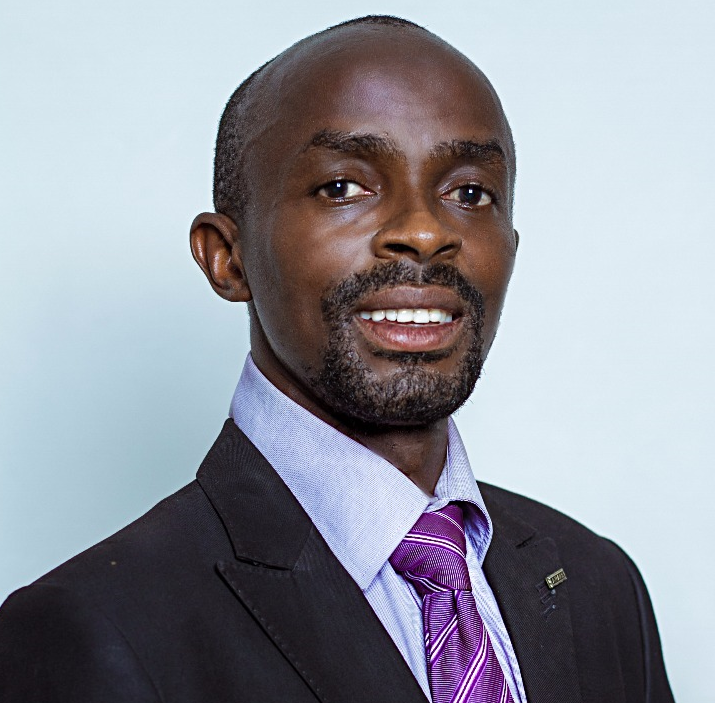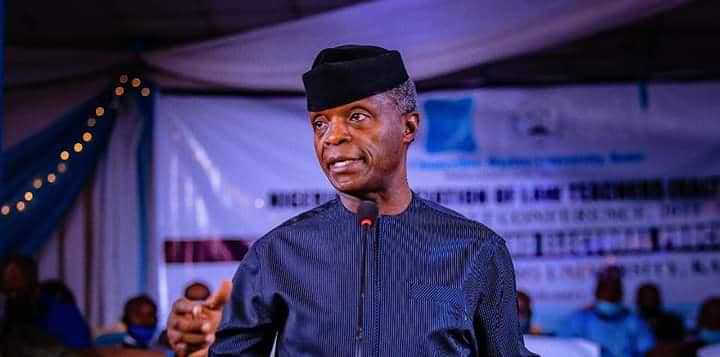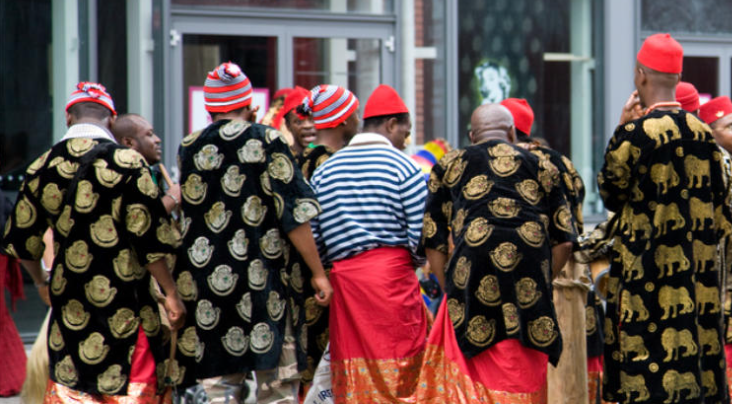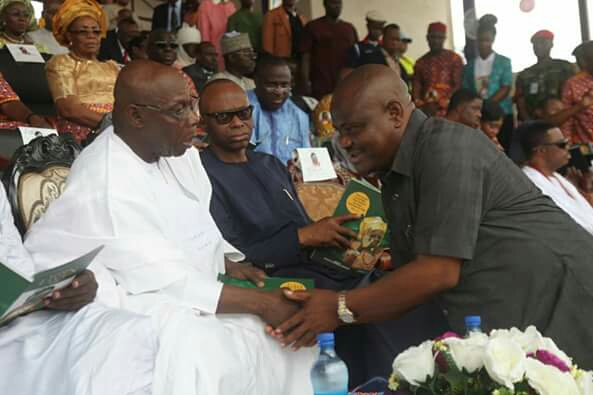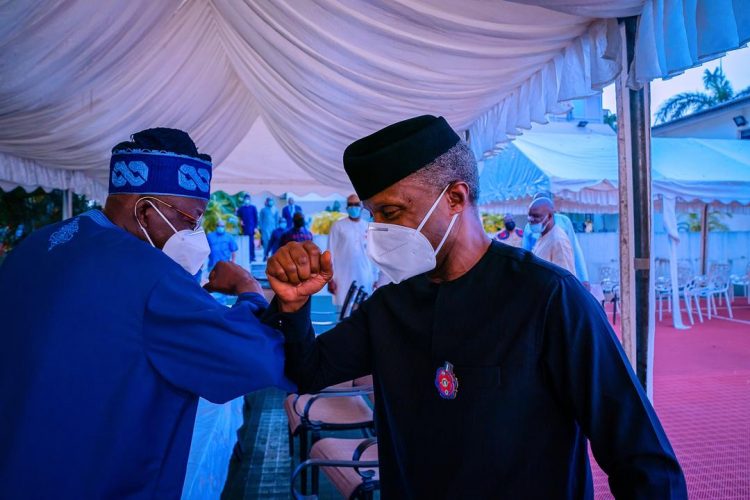The first time I saw him, there was something comfortably weird about him. His intellection was exuberantly provocative but also quite attractively magnetic. There was some level of enthusiasm about him that naturally infected those around him, which instantly mobilised them to share and participate in his strange search for some kind of esoteric ideas and possibilities that weigh above human comprehension and some level of acceptability.
Yes. I met Prof Abiodun Musa Aibinu at the Federal University of Technology, Minna, a few years ago, where he was lead lecturer in Mechatronics, an evolving genre of study that he was pushing towards Spiritual Intelligence. For the nerd, you may have heard of Artificial Intelligence, which was included in his pedagogy, native intelligence and all that stuff, but Spiritual Intelligence was in the upper limit, and I remember that in one of his presentations, it drew quite some absurd expectations and even more hilarious responses, until he struck his point.
“Spiritual intelligence,” he said, “can be described as “the adaptive use of spiritual information to facilitate everyday problem solving and goal attainment,” explaining that his research interest on spiritual intelligence will focus on its adaptation to advancing learning, innovation, problem solving and development of self-consciousness.
Yes. Aibinu is an audacious fighter in his academic pursuits, and that is one reason his students at the institute where he mobilised them for new pursuits, love him. And there are stories that are very moving. A young graduate who had finished National Youth Service had visited her department to find out how the research they started was going. On getting there to see the level of work, the young lady was trapped and simply refused to return home. The Intelligence bug had hooked her and her excitement was beyond limit when this writer visited the school. So was the case of two young men who had done so well in their research pursuit that a branch of the security service simply snatched them away even before they could do their National Youth Service. Their work with the security would cover all that.
Advertisement
In his Inaugural Lecture, titled: Spiritual Intelligence : Beyond Mechatronics Engineering and Artificial Intelligence, Prof Aibinu captured a slice of his object of teaching as reproduced below.
“Presently, the objectives of our Bachelor degree programme in Mechatronics include: producing graduates with competences in engineering design and analysis, providing research opportunities in Mechatronics Engineering or related disciplines, and providing required advanced professional knowledge in the industrial set up.
“Our Mechatronics Engineering programme at DOME, FUT Minna, focuses on the following key elements, namely: Artificial Intelligence, Signals and Systems, Digital Signals and Image Processing, Sensors and Actuators, Physical Systems Modeling, Software and Data Acquisition and Human Machine Interface,” he enthused.
Advertisement
But there is another thing that is a little bit intriguing. Aibinu is a product of the telecommunications industry, apart from his academic proclivities. He had worked in the industry and had street experience and face-to-face contacts with the ordinary people and their needs for daily communications.
Prior to venturing into academic field, he had worked with: MTN Communications (Nigeria) Limited; GS Telecom (Nigeria) Limited; DCC Satellite and Networks Limited; Oganla Consulting and Investment limited; Communications Associates Limited, just to mention but a few. Not many people will remember some of these companies, but all I can say here is that the journey to build an enduring tech ecosystem started in the country long ago. Some of these companies featured prominently in that process. At some point, and I remember this point with gratitude, Communications Associates offered free lectures for tech reporters as a way of preparing them for the journey ahead. An organisation like MTN, where Aibinu had worked first as Microwave Transmission Planning Engineer and later, as Materials Planner under the Capital Projects group, only came in the last two decades but fortunately has made redeeming contributions to rescuing the nation’s telecoms sector from shame, the sort we have seen in other sectors, signs of failed leadership that have pushed the country to the edge.
The point here is that Aibinu is combining industry and street experiences with academics in order to deliver valuable knowledge to the society.
Two of his projects were particularly very exciting to me, perhaps because of my biases on one hand and his ability to incorporate the students on the other. Part of the pitch process for a research grant at the Nigerian Communications Commission (NCC) then was the readiness of the lead researcher to include students in the work. Aibinu did that with zest. Two of his completed projects with his students for the NCC are: Multiple Operators SIM Card (MOES) and the Intelligent Walking Cane Robot (I-Walking Stick).
Advertisement
The MOES card is expected to provide subscribers with the privilege of enjoying good services from available mobile network operators without the added expenses of having more than one phone or a phone with multiple SIM slots. The developed MOES card in the form of a new cognitive phone is expected to guarantee all time access to networks with the best available signal strength and quality of service (QOS), even while in transit on Nigerian highways and roads.
Similarly, the Intelligent Walking Cane Robot (I-Walking Stick) was introduced in order to provide ambulatory support to the aged, persons with disability, and persons lacking the ability for autonomous ambulation. Apart from providing basic walking aid support, the walking stick has an inbuilt mobile phone, intelligent fall detection and obstacle detection. The projects are in the process of commercialisation.
Prof Aibinu has won some other research grants from within and outside Nigeria which include: Nigerian Communications Commission research grants in 2015, 2016 and 2019; TETFUND Research grants in 2014, 2017, 2018, 2019, 2020; Royal Academy of Engineering Research Grant Award, 2019; University of Leeds E-Waste Grant, 2020; and Kaduna State Government Research Grant, 2020.
At the moment Aibinu calls himself an advocate of Spiritual Intelligence, Artificial Intelligence and AcadoPreneurship. The last word smells of obscurantism. But it simply means an academic who is delving into the world of business. He needs our prayers however as he tries to commercialise some of his research works.
Advertisement
Prof Aibinu needs our prayers even more today, for the euphoric reason that on April 22, 2022, he resumed as the Vice Chancellor, Summit University, Offa, Kwara State. I have been lucky to have relationships with a number of Vice Chancellors in some of our universities. From discussions with them I know a little bit of the politics that comes in the way of scholarship. My little advice for Aibinu is to do more of administration than politics, stay in the classroom, and stay even closer to the students whose contributions have escalated his academic sojourn with good speed.
Advertisement
I wish him well.
Advertisement
Views expressed by contributors are strictly personal and not of TheCable.
Add a comment

